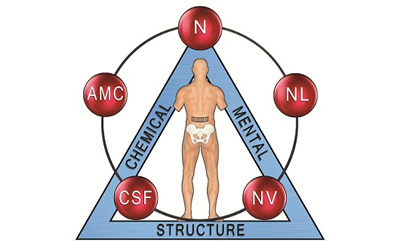
Applied Kinesiology (AK) Manual Muscle Testing
What is Applied Kinesiology (AK)?
Applied Kinesiology is a process that examines the structural, chemical and mental aspects of a person’s overall health. This is done in a non-invasive way by using manual muscle testing by a trained professional for better understanding and evaluating body functions.
Manual muscle testing allows the practitioner to assess the function of the body, when used in conjunction with various sensory stimulus inputs. In basic terms- A strong muscle will test strong until impacted by a negative stimulus added to the system. Conversely, a weak muscle will test strong when a positive or corrective stimulus is added to the system.
Using muscle testing employs upper motor pathways in the nervous system, which are theorized to be weakened when the body is challenged, thus resulting in widespread muscular weakness, identified by any single muscle or group of muscles. Type A muscle fiber contraction requires a significant amount of energy to contract, and this is why any distraction to the system can weaken the muscles.
Manual muscle testing has many different techniques that use this premise- Applied Kinesiology, NeuroEmotional Technique, System Strength Analysis, etc.

